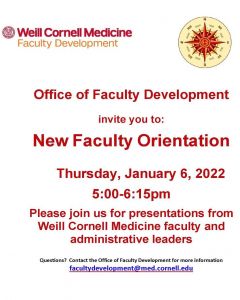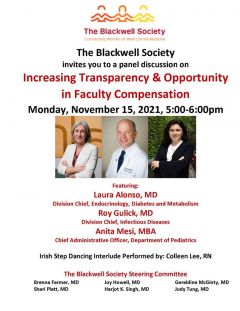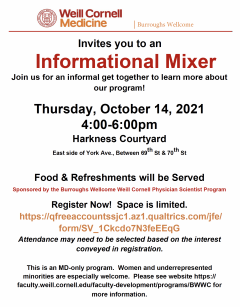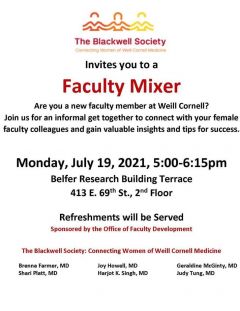LAMP Session #3 (closed event - for members only)
Registration will be limited. Please fill out the registration form https://qfreeaccountssjc1.az1.qualtrics.com/jfe/form/SV_1Ckcdo7N3feEEqG . Due to the limited space, attendees may need to be selected based on interest conveyed in the form.
This is an MD-only program. Please see website https://faculty.weill.cornell.edu/faculty-development/programs/BWWC for more information.





